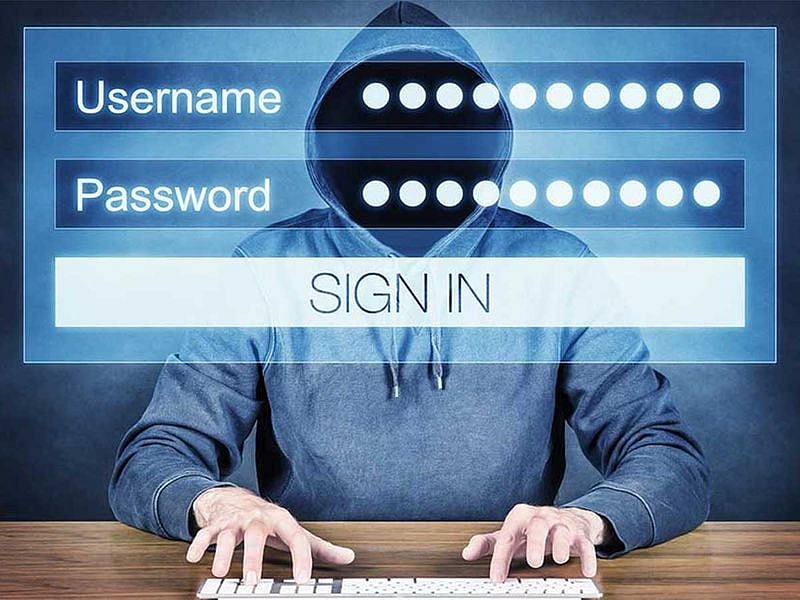Is your password an open door to hackers? Why your digital lock needs an upgrade
Users’ need to do more than ‘change passwords regularly’, warn UAE cyber security heads

Dubai: In our increasingly connected world, every device – from smartphones and home security cameras to complex business systems and even medical equipment – acts as a digital door to users’ personal information and sensitive data. And the first, most crucial lock on that door? Passwords.
As the world marks World Password Day, cybersecurity experts in the UAE are issuing a clear warning: neglecting your digital front door is an open invitation for attackers. While simply “changing passwords regularly” has been a long-standing advice, the modern threat landscape demands a more sophisticated approach focusing on strength, uniqueness, and smart management.
“Every device that speaks to your network... instantly becomes part of your attack surface,” said Osama Alzoubi, Middle East and Africa Vice President at Phosphorus Cybersecurity. He impressed upon a simple rule: “If it’s connected, it must be protected.” Alzoubi said that many devices, especially the vast and growing fleets of IoT (Internet of Things), are still vulnerable due to default usernames, outdated software, and, perhaps most commonly, reused or weak passwords. These weak spots allow attackers to penetrate networks rapidly.
In 2025, with our lives and businesses deeply integrated with digital systems, robust password practices are non-negotiable. Alzoubi uses a relatable analogy: “Treat passwords like critical supplies: inspect them, change them, and strengthen them regularly, just like changing oil in an engine.” He sees World Password Day as a vital reminder that weak credentials are “open doors for attackers. Shut them now.”
The threat is real
Irina Zinovkina, Head of Information Security Analytics Research at Positive Technologies, points to recent data showing that in late 2024 and early 2025, over half (53 per cent) of successful attacks on organisations led directly to the exposure of confidential information. Passwords, she notes, remain a critical defence but are often the “weakest link.”
Experts agree that the traditional password alone isn’t enough, especially when it’s weak or reused. Mohammad Ismail, Vice President for EMEA at Cequence Security, explains how weak, reused, or generic passwords are easy targets for automated attacks like “brute force” (guessing many passwords quickly) and “credential stuffing” (trying leaked username/password combinations from one site on another).
“AI-driven tools have drastically shortened the time needed to crack simple passwords,” Ismail states, putting data at constant risk. A single compromised password can open the door to significant breaches, ransomware, and severe damage. Attackers are no longer just trying their luck manually; they are using automation, machine learning, and AI at an industrial scale to exploit these weaknesses for account takeovers and persistent access within networks.
While the concept of forced, frequent password changes without cause is debated and sometimes discouraged by security experts (as it can lead users to choose simpler, easily forgotten passwords), the core principle remains: your passwords must be strong, unique, and managed wisely.
So, what are the crucial steps you, as a consumer in the UAE, should take to secure your digital life?
Embrace Strength and Uniqueness: Move beyond simple, easily guessable passwords. Think of passphrases – longer, memorable combinations of unrelated words are often much stronger than short, complex ones with confusing symbols. Crucially, never reuse passwords across different accounts. Your other accounts won’t be immediately vulnerable if one site is breached.
Utilise a Password Manager: Juggling dozens of unique passwords is hard. Password managers are secure applications that generate strong, unique passwords for each site and remember them for you. This is one of the most effective steps you can take.
Enable Multi-Factor Authentication (MFA): This is the most critical layer of defence beyond your password. MFA requires a second step to log in, like a code from your phone or a fingerprint scan. Even if an attacker gets your password, they can’t get in without this second factor. Enable MFA everywhere it’s offered, especially for email, banking, social media, and cloud services.
Be Vigilant Against Phishing: Attackers often trick you into revealing your password through fake emails or websites. Be suspicious of unsolicited requests for your login details.
Update Weak or Old Passwords: While forced changes might not be ideal, if you know you have old, weak, or reused passwords, update them now to strong, unique ones, preferably using a password manager.
Mohammad Ismail of Cequence Security said that while the future might move towards passwordless authentication (like passkeys and biometrics), passwords are still the reality for most accounts today. Therefore, strengthening our current password hygiene is not optional.
Protecting yourself in the digital age starts with your password. By making them strong and unique and supporting them with tools like password managers and MFA, you build a stronger defence against the ever-growing wave of cyber threats.
Sign up for the Daily Briefing
Get the latest news and updates straight to your inbox
Network Links
GN StoreDownload our app
© Al Nisr Publishing LLC 2026. All rights reserved.